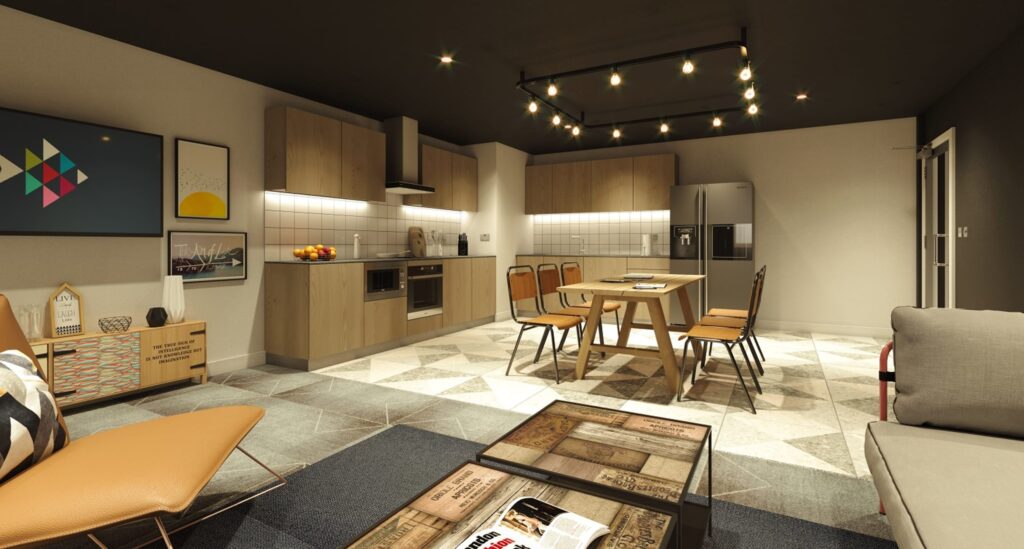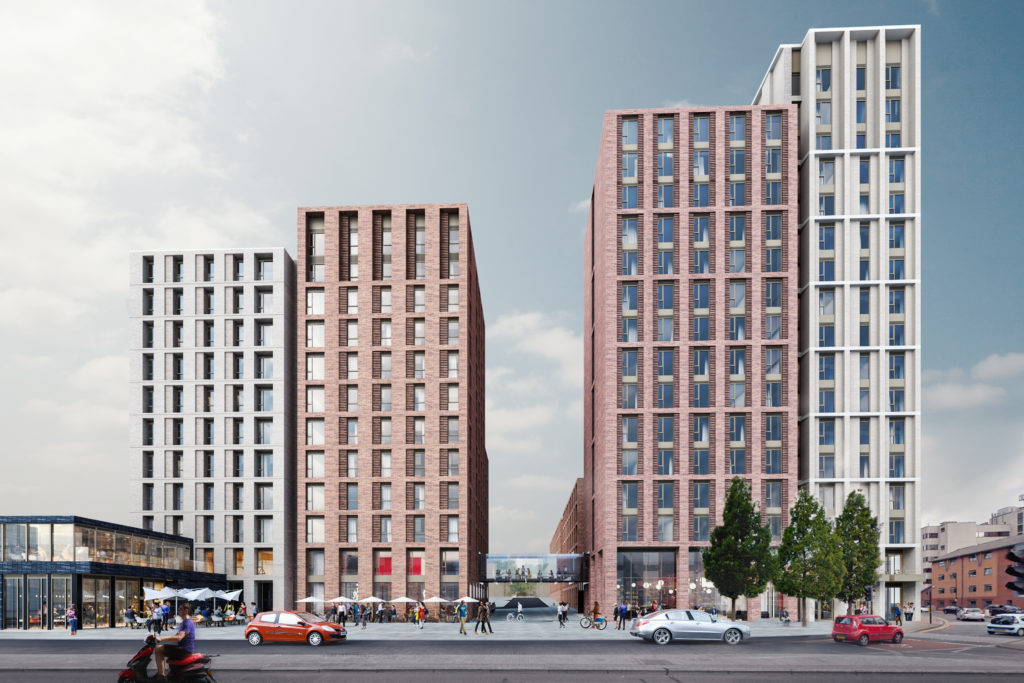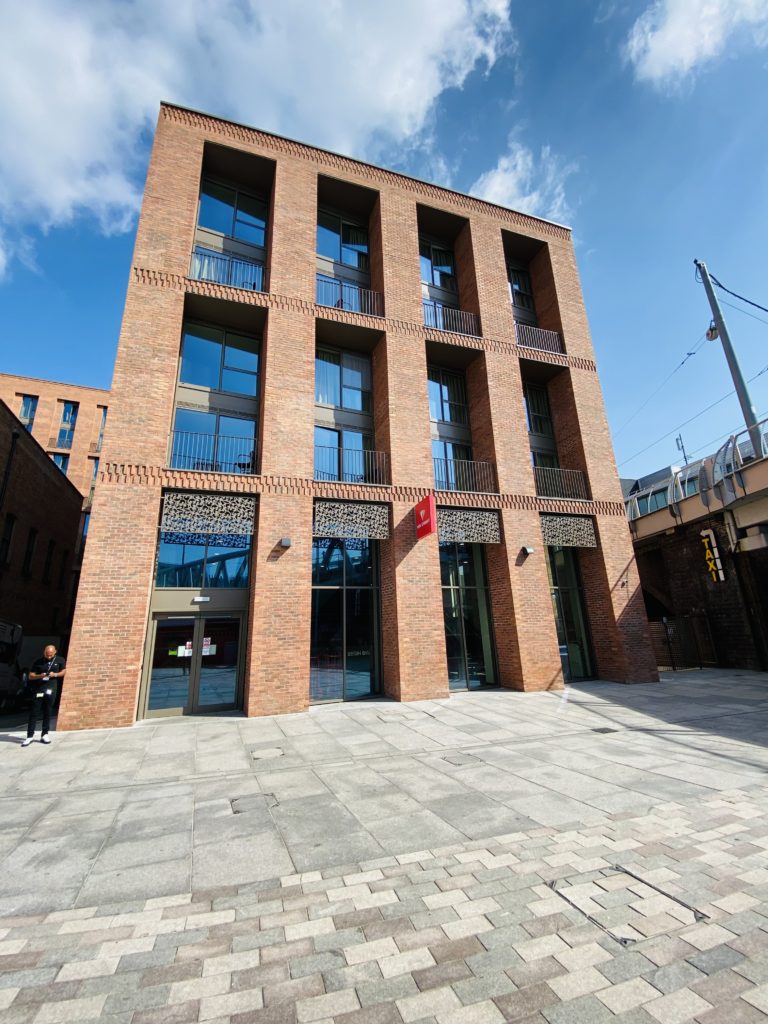With demand outstripping supply, and the number of university applicants continuing to grow year-on-year, the need for purpose-built student accommodation (PBSA) is greater than ever.
The lack of student accommodation throughout the UK has been well documented.
From Manchester, which has one of the biggest supply and demand imbalances, with a shortage of 23,186 beds (Amber), to Scotland, where a 2022 survey that found that 12% of students had been homeless at some point since the beginning of their university studies (NUS Scotland) – the problem is widespread.
It is only compounded by an ever-increasing number of students, alongside a growing overall population – all of whom require homes.
Between 2020 and 2030, the UK population is predicted to grow by 27% (HEPI), and based upon current admission levels, undergraduate applications to universities are expected to increase by 25% to one million by 2030 (UK Student Housing News).
“Both the current imbalances in supply and demand, and the fact that this is predicted to widen further, has resulted in a far greater investment in PBSAs”, says Paul Stevens, Acorn Aluminium’s Managing Director. “Last year for example, the student accommodation sector saw a record investment of £7.2bn – a 69% rise on the previous year.”
“However, it would be naïve to judge purely based on this figure. With rising costs and volatility in the building sector, the number of projects actually breaking ground seems to be faltering.”
Despite the large investment in PBSA, only 13,543 additional beds were completed ready for the 2023 university term across the UK (HEPI). Of these, less than 9,000 were within new accommodation – the remainder were beds that had previously been taken out of commission for refurbishment or building works (HEPI).
Newbuilds and HMOs (House in Multiple Occupation)
At a time when the UK has built fewer new houses than at any time since the Second World War, demand for new homes is hitting record highs.
New housing supply is currently lower than the government’s ambition of 300,000 new homes per year, with around 233,000 new homes supplied in 2021/22, and therefore striking the balance between creating accommodation for students, without reducing the number of houses available for the rest of the population is a difficult problem to navigate.
Increased mortgages and changes to taxation have made it less beneficial for landlords to operate an HMO. With around 18% of UK students currently residing in HMOs, there is an increase in landlords selling up stock to pursue other private rentals (CBRE). Whilst this is a positive when viewed from the perspective of local communities in the amount of housing stock available to buy, it seemingly compounds the student housing crisis.
“With the housing market in general being so competitive, and the need for new housing being so strong, we have to be careful that we’re not robbing Peter to pay Paul. HMOs are declining, but if construction companies choose to undertake HMO conversions or commit large portions of money to newbuild projects that are unlikely to reach completion, then they are at risk of taking away the possibility of new housing for local communities”, says Paul.
“By renovating commercial properties that are no longer in use, we’re breaking this cyclical relationship, and allowing developments in the residential sector to take place, alongside dedicated PBSAs.”
Rutland Street
“There are a lot of purpose-built student accommodation (PBSA) schemes coming online but new schemes alone are unlikely to meet projected demand. With higher operating costs and falling demand of the buildings, the conversion of commercial space to residential applications makes a lot of sense”, says Paul.
This can be seen in Acorn’s involvement in the multi-million-pound conversion of the former International Hotel in Leicester’s Rutland Street, led by True Student and Torsion Group. The previously derelict building is being converted into a new 470-bedroom student scheme, including communal, study and recreational spaces.

Acorn has been appointed to deliver the curtain walling, window and door, spandrel and louvre elements of the scheme on a manufacture, supply and install basis.
Representing more than 4,400m2 in total, this includes 1,050m2 of curtain walling in the SF52 system, and 350m2 of aluminium windows, supplied in Senior Architectural Systems SPW600E energy efficient aluminium window system.
To keep costs low, and to allow more flexibility in installation, Acorn manufactured all windows to a standard size but with a 25mm add-on as required for size variations.
Leonardo Buildings

The Leonardo Buildings renovations in Leeds, designed by architects Cartwright Pickard, represent a £62million student accommodation scheme to adapt a 1990s office space to residential, including the conversion of a Grade II listed Victorian print works.
Acorn Aluminium was appointed to the 473-bed project by main contractor Robertson Construction to design, manufacture and install, more than 4,000m2 of curtain walling and windows to the scheme.
In addition to the glazing elements of the scheme, the design also encompassed perforated external façade panels, the design of which were inspired by ornate Victorian tiling found within the original Leonardo Buildings main staircase.
Fusion Students
Acorn Aluminium have also undertaken a variety of new-build PBSA projects.

Located in the heart of Sheffield, Fusion Students, is a four block 846-unit student accommodation scheme defined by a graduated profile, ranging in height across the four blocks from six-storeys at its lowest elevation to 17-storeys.
The £46.5million project, designed by architects Corstorphine & Wright, makes significant use of Acorn Aluminium’s commercial glazing, including two-storey curtain walling, bringing light and a sense of space into communal areas; and 1,150 windows.
Vita Students
As part of the regeneration of Nottingham’s southside, Acorn Aluminium were appointed to design, manufacture and install, windows, panelling and louvres, into a newbuild 319-room accommodation block.

Designed by architect Fuse Studios and delivered by main contractor Morgan Sindall, the 101,375 square foot development features open-in casement windows that were manufactured by Acorn Aluminium in the acoustically rated and tested Technal FY65 aluminium commercial window system, to combat the noise from the tramlines adjacent to the development.
Using this acoustic window system, Sound Reduction Index (RW) ratings of as high as 42dB were able to be achieved.
Solving the demand
“We’re engaging early with these renovation schemes”, says Paul. “We’re talking to our usual blue-chip customers, making sure that we’re at the forefront of their mind.
“The ongoing investment in PBSAs, as well as the renovation of commercial spaces, will be vital in addressing student demand going forward. They’re specialist projects, and so it’s crucial that contractors choose to partner with companies that have plenty of experience and understanding of the sector.”
For more about Acorn Aluminium please call 0115 928 2166, email [email protected] or visit www.acornalumnium.com
